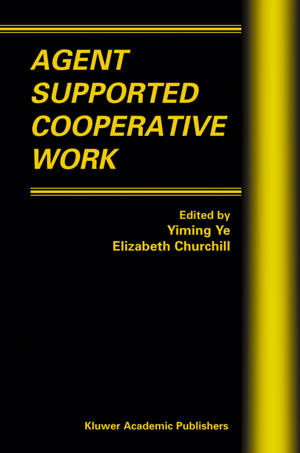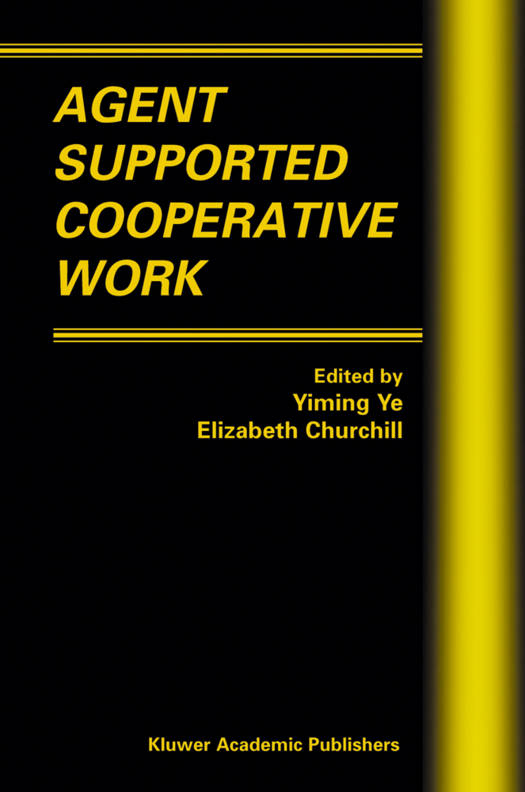
- Retrait gratuit dans votre magasin Club
- 7.000.000 titres dans notre catalogue
- Payer en toute sécurité
- Toujours un magasin près de chez vous
- Retrait gratuit dans votre magasin Club
- 7.000.000 titres dans notre catalogue
- Payer en toute sécurité
- Toujours un magasin près de chez vous
Agent Supported Cooperative Work
Description
Improvements in computer networking have heralded great expectations for computer-mediated distributed work. However, experience has revealed that, as information flow improves, a central problem for distributed workers is the administration, management and control of that information. Research into Computer Supported Cooperative Work (CSCW) investigates design methods and technologies for the support of collaboration, communication and coordination of distributed group work, both within and among organizations.
In tandem with this focus on the support of distributed communication and collaboration, there have been exciting developments in the fields of Intelligent Agents and Distributed Artificial Intelligence (DAI), notably in the concepts, theories and deployment of intelligent agents as a means of distributing computer-based problem solving expertise. The paradigm of multi-agent systems forms a proposed basis for the design of CSCW architectures, the support of CSCW operations and for addressing some of the problems of cooperative working.
The application of a multi-agent approach to CSCW makes information exchange among the participants easier by delivering support to the participants, assisting workflows and procedures, and providing convenient user interfaces to CSCW systems. Furthermore, the ideas inherent in such an approach are also applicable to other domains, such as support for interactive learning. Organizations that seek to exploit the advantages offered through CSCW will benefit from the integration of agents in the management and use of their corporate knowledge, especially with the advancement of wired or wireless networking, pervasive computing, and other information technologies.
Agent Supported Cooperative Work describes the state of the art in this exciting new area, covering both theoretical foundations and practical applications of ASCW. It is the first book explicitly dedicated to ASCW, bringing together contributions from international experts in the field.
Spécifications
Parties prenantes
- Editeur:
Contenu
- Nombre de pages :
- 297
- Langue:
- Anglais
- Collection :
- Tome:
- n° 8
Caractéristiques
- EAN:
- 9781461348344
- Date de parution :
- 30-09-12
- Format:
- Livre broché
- Format numérique:
- Trade paperback (VS)
- Dimensions :
- 156 mm x 234 mm
- Poids :
- 449 g






